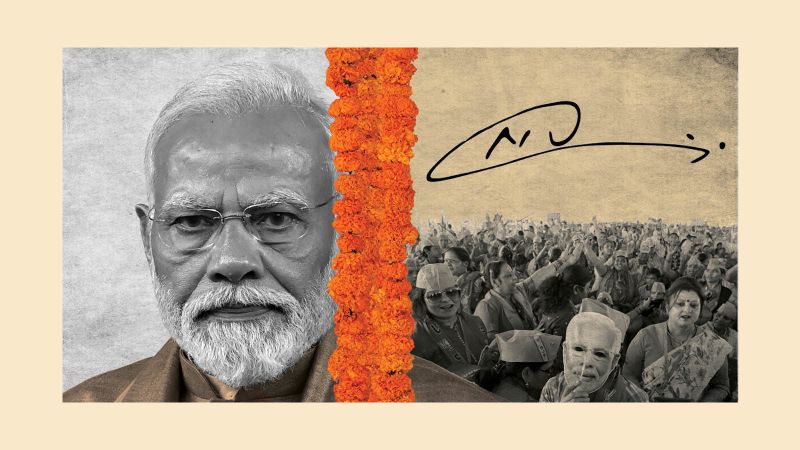Narendra Damodardas Modi, currently serving as the 14th Prime Minister of the vast democracy that is India, is indisputably one of the most influential political figures that this South Asian nation has ever seen. His journey from a humble tea-seller to the highest office in the country is a testimony to his resilience, prowess, and strategic leadership skills. With a strong charisma, an engaging oratory style and impactful governance, there is no denying that Modi has captured the attention and loyalty of a significant portion of the Indian populace. However, his tenure has been marked with as much controversy as admiration, due to certain policies and decisions. As he prepares to potentially seek a transformative third term in office, it’s worth exploring his impact as a leader, his wins, and the criticisms he has faced.
One of the most distinguishing aspects of Modi’s leadership is his commitment towards positioning India as a major player on the global stage, economically and politically. His ‘Make in India’ initiative, aimed at boosting the country’s manufacturing sector, showcases his drive to increase foreign investments and domestic manufacturing capabilities. Also, his commitment to renewable energy was remarkably demonstrated when he played a leading role in establishing the International Solar Alliance. Furthermore, Modi’s assertive diplomacy has bolstered India’s international stature. Events such as his informal summits with the Chinese President, Xi Jinping, and high-profile visits to the UAE, Palestine, and Israel have significantly elevated India’s diplomatic standing.
Besides his foreign policy engagements, Narendra Modi’s people-centric governance has set a unique precedent. He has orchestrated a number of sweeping welfare policies aimed at the uplifting of the underprivileged section of the society. Notably, the Pradhan Mantri Jan Dhan Yojana, a financial inclusion program, has brought banking facilities to millions of unbanked people. The Swachh Bharat Abhiyan, an ambitious cleanliness drive, has significantly improved sanitation conditions across the country.
However, Modi’s tenure has been coloured with criticism regarding various consequential decisions and policies resulting in societal and economic divides. One such controversial decision is the abrogation of Article 370 that resulted in the removal of the special status accorded to Jammu & Kashmir. This move sparked strong resistance in the valley and led to tensions with Pakistan. Internationally, it attracted criticism over allegations of human rights violations.
The implementation of the Citizenship Amendment Act (CAA) and the National Register of Citizens (NRC) has also cast shadows of religious discrimination that many critics argue undermines India’s secular constitution. The passing of these bills invited protests from various quarters of the society and led to nationwide civil unrest.
Equally contentious was Modi’s abrupt decision of demonetization in 2016, where INR 500 & 1,000 currency notes were declared invalid. It was aimed at curbing corruption and flushing out black money, but it also resulted in immediate cash shortages and decreased economic growth, leading to public inconvenience and criticism.
As Modi potentially gears up for a third term as Prime Minister, the question surges whether this will be a transformative period for India. His actions till now suggest a willingness to be decisive and disruptive, and his popularity, despite the controversies, remains high. Yet, his third term, if secured, will see him face the strong tide of expectations, criticisms and the aim of reconciling India’s myriad complexities. Regardless of one’s perspectives on his leadership, Modi’s potential third term would undoubtedly be a defining period for India’s future. His navigation of the prevalent challenges will determine whether his transformative ambitions resonate with the diverse, dynamic, and increasingly assertive India of the 21st century.




